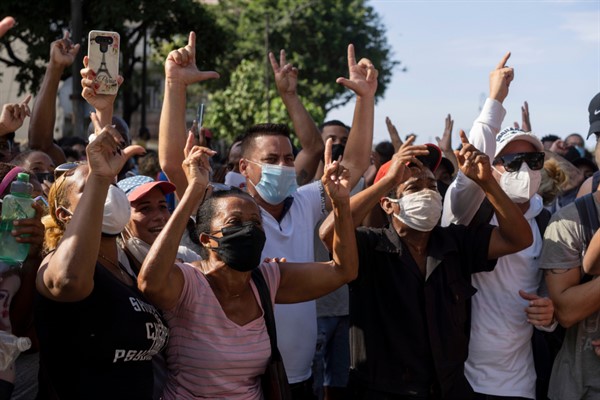This is the web version of our subscriber-only Weekly Wrap-Up newsletter, which uses relevant WPR coverage to provide background and context to the week’s top stories. Subscribe to receive it by email every Saturday. If you’re already a subscriber, adjust your newsletter settings to receive it directly to your email inbox.
The outbreak of protests in Cuba this week represents a shocking departure from the status quo, while also fitting into familiar narratives that have been playing out for a while now.
We’ve become used to seeing periodic, small-scale protests in Cuba—most recently involving an artists’ collective known as the San Isidro Movement—that, while not tolerated by the Cuban government, follow a familiar script. The leaders, who are usually known to the authorities for their long involvement in activism, are often detained for short periods of time, allowing the authorities to stifle burgeoning dissent without the heavy-handed crackdowns that in the past led to international condemnation and prisons packed with political prisoners.

